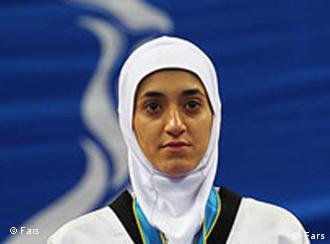BY: SHIREEN AHMED
I came across a wonderful site that presents a "portrait of a city through its working people". Completely normal yet amazing citizens living in Kabul, Afghanistan. Among some of the people chronicled is Salma Hosseini, a TaeKwonDo Instructor. As Salma teaches, she empowers and inspires young girls and boys. Salma speaks of how she was aggressively approached by a man on the street who tried to slap her. She defended herself and kicked him. She's a TaeKwonDo champion and simultaneously defended herself and defended her right to practice martial arts. Such an incredible athlete. She's dedicated and is committed to her sport. Despite the negative comments and obstacles of living in a country riddled with cultural and political challenges, she fights on. And she commands respect.
My name is Salma Hosseini
I was a member of the National Youth Team in Kabul, and I’m a volunteer at the Haidari Club and also the coach for the National Women’s Team in Kabul. My name was recorded as the first female trainer and medallist in Afghanistan. It gives me great pride.Normally when you face your opponent you feel aggressive, but you can let off steam with each hit. But an aggressive face intimidates your opponent, so this is my professional policy. But really I’m kind at heart.The Haidari Club is the only gym in Afghanistan where boys and girls train together. The uneducated and uncivilized people don’t approve of us. They say, ‘women shouldn’t be doing this, women should get married and have babies’.
I get sad, because the girls like it. They have the talent and they are brave enough to do it. They could have a future in it. But it’s their family, the father, the elder brother, or sometimes the elder sister, who makes the decision for them.But my father and brothers support me so it’s OK for me. They are very good to me. I learnt Taekwondo in Iran from an Iranian trainer. I was a student there for 10 years. I’ve been told that when I was five years old, because my father was a political activist, and we were being followed, my father and family were forced to flee to Iran. We lived there for 20 years.When I first put my foot back on Afghan soil, I felt so happy, I knelt down and kissed the ground. But when I saw the people and the ruins of war, it made me sad.After 20 years when we heard that the Taliban regime had collapsed, my father’s friends asked him to come back.My goal is to serve my people. I’ve been insulted but I haven’t been threatened yet. When I go outside I try to be modest, I just focus on what I am doing.
Once, after a training session when I was still wearing my tracksuit, I passed a guy who touched my shoulder inappropriately, and insulted me. I turned around and asked “Are you talking to me?”He said “Yes, I’m talking to you. You’re a woman and you shouldn’t be like this,” and then tried to slap me, but I didn’t let him, because after all, I am used to defending myself in a sporting environment. I kicked him instead, not using all my force, but enough to stun him. He wanted to hit me back but I had my guard up, and while we were still arguing, the police came and took him away.When I am at home or when I go out socially, I try to be like a woman. But when I am at work, I try to be like a man.In spite of all the problems along the way, I have been resilient. I can’t think of any other woman who could do what I’ve done, in a place like Afghanistan with such a backwards culture.
Full article and source: http://www.kabulatwork.tv/chapter/sport-and-recreation/taekwondo-teacher-pages/



















